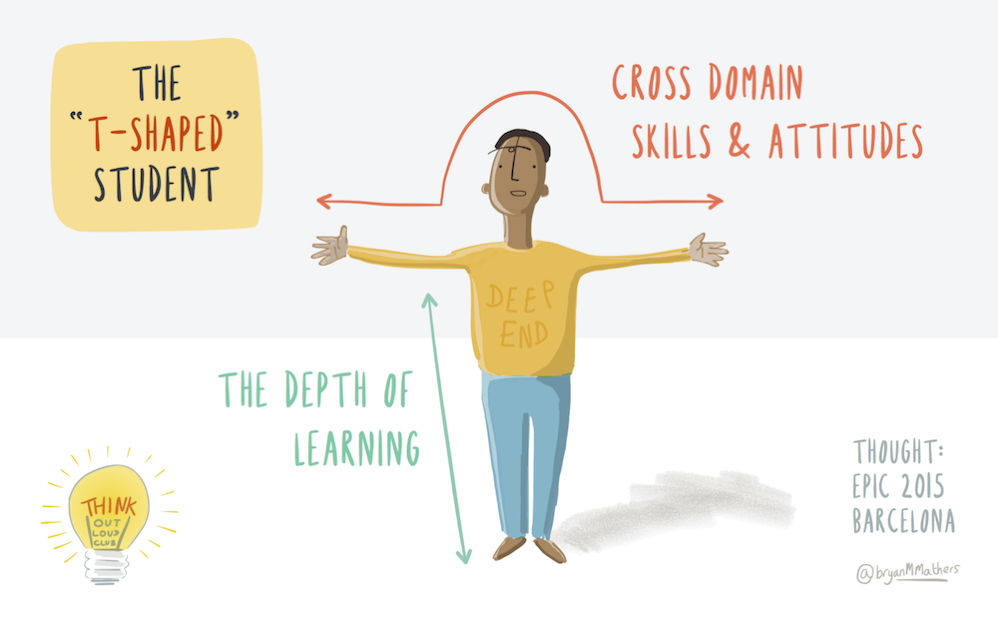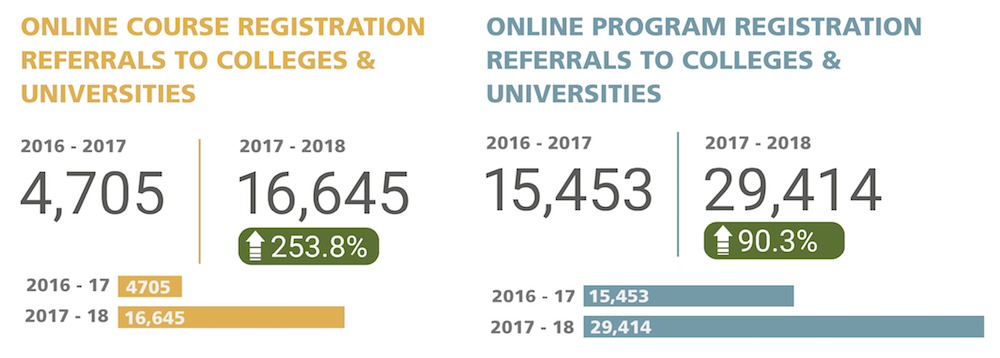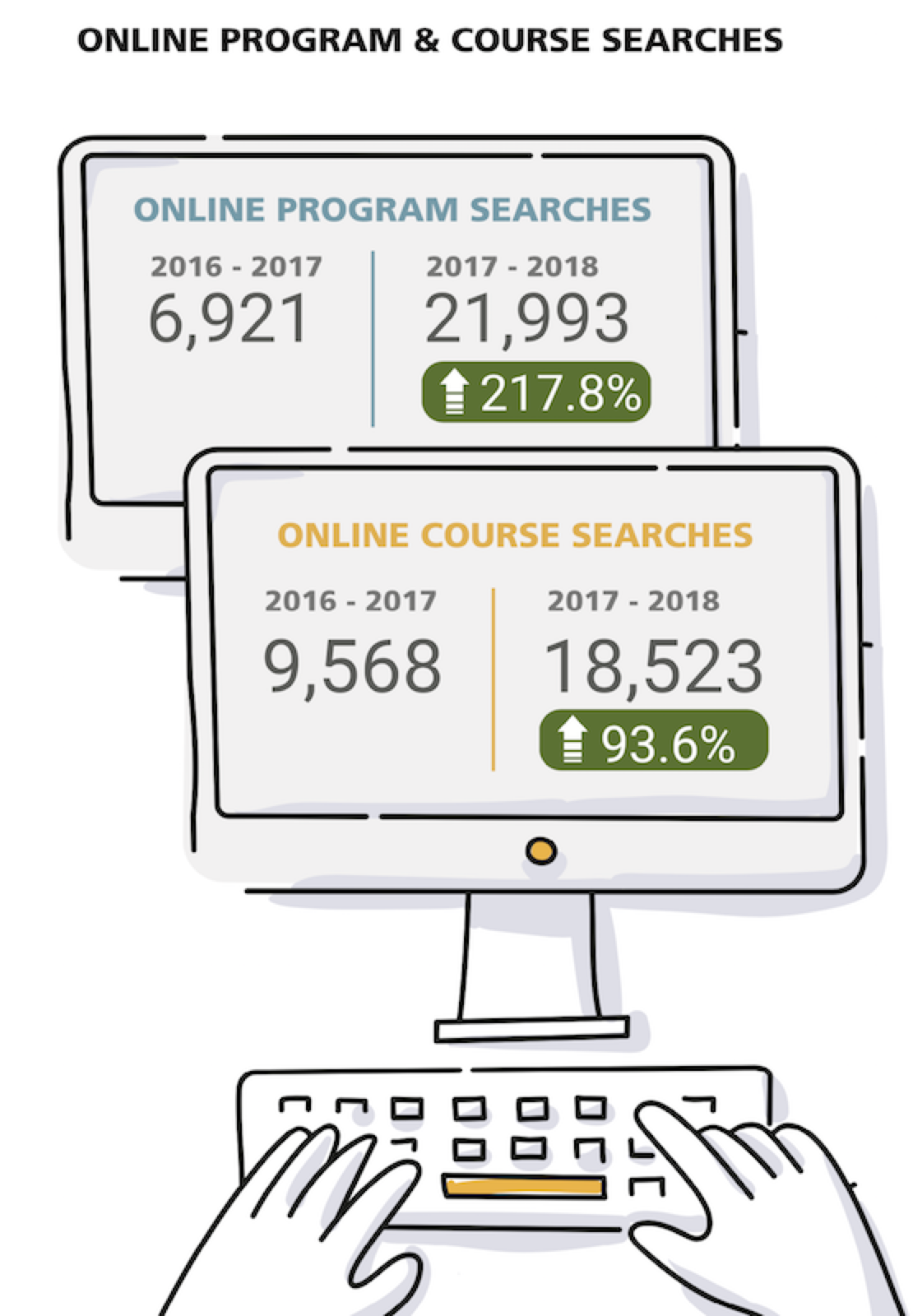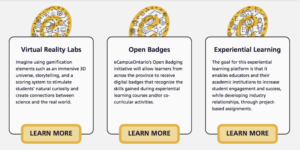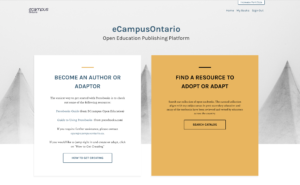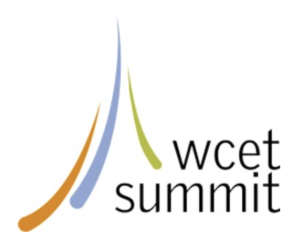Last year at eCampusOntario we launched our program for professional learning. We called it Ontario Extend. Ontario Extend (Extend) has six core modules. The modules are grounded in constructivist learning theory, and also have some unique “learning by doing” elements that make it a different experience for many educators.
Extend is informed by an analysis of exemplary resources that were already available in the province and an exploration of professional learning models from other jurisdictions. In addition to the content modules, which can be used as a baseline for self-directed study or group instruction, we included daily social media connections over a six-week period, and action projects using Twitter #hashtags. We also developed a growing Activity Bank to which participants can contribute.
Finally, in its first iteration Extend provided access to a Domain of One’s Own opportunity for educators who would like to fully control their presence on the web, a step further towards empowerment in a digital sense.
The Extend idea arose directly from seminal and emergent literature on self-directed learning. Alan Tough’s The Adult’s Learning Projects (1971) was heralded as a fresh approach to theory and practice in adult education. It was all about learners taking control and planning their own learning episodes. We set out to harness Tough’s ideas along with those of other adult learning theorists (e.g., Knowles; Bandura; Lave & Wenger; Brown, Collins & Duguid) to provide an online framework built around six key themes for empowering educators in a digital age. Our goal was to give Ontario educators the opportunity to explore, engage and extend their knowledge of teaching practices in a digital age. And, the target was for educators to reach a level of empowerment where they would feel comfortable using the digital tools of their choosing to advance learning with their students.
Simon Bates (2016) has provided a model for the Anatomy of the 21st century educator that encompasses the knowledge, skills and attitudes that are identified as the foundational skills required to thrive (and not just survive) in a digital world (Allan & Grudziecki, 2006; Coldwell-Nelson, 2018). The model proposes that all educators must have:
- An understanding and appreciation of what research has to say about how people learn.
- The ability to curate, develop, use, and share appropriate educational resources.
- Skill in discerning the possibilities—and limitations—of technology to support teaching and learning.
- Developed professional learning networks through collaborations with other disciplines.
- A scholarly approach to teaching.
- A willingness to experiment: to try, reflect, and learn from new approaches, pedagogies, and technologies to support learning (Bates, 2016).
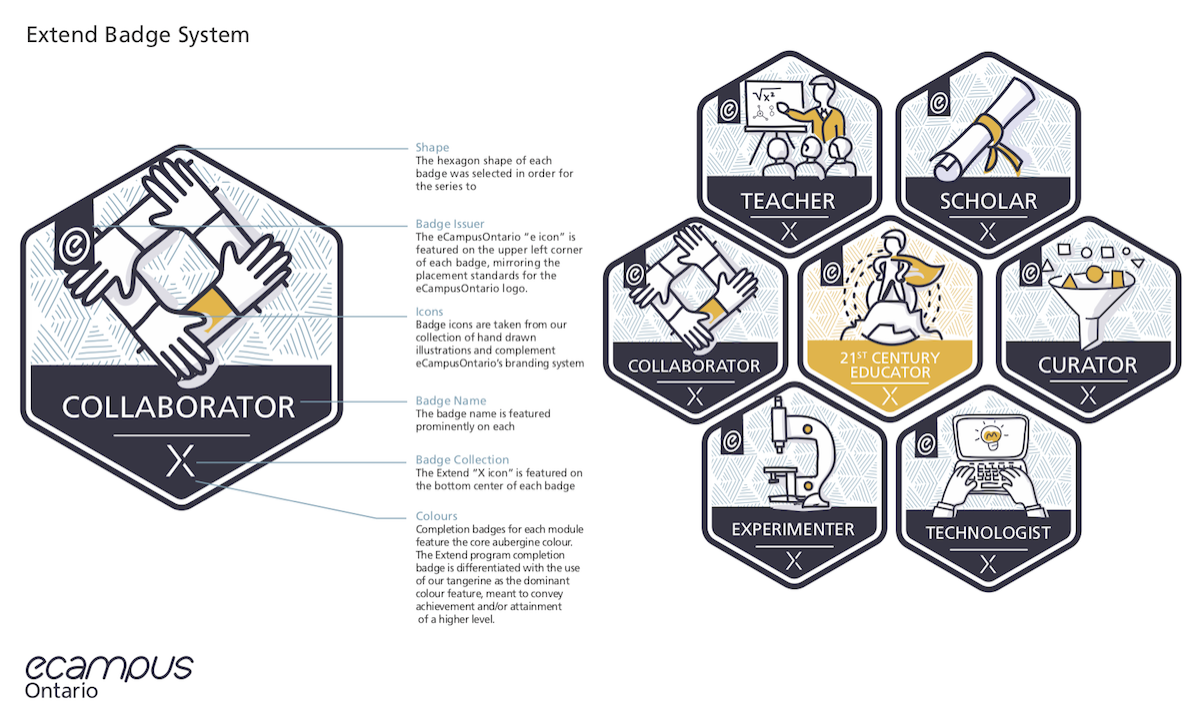
Our approach to program development has been guided by design-based research. We began the Extend program with the assumption that we probably wouldn’t get it right from the start and that we’d need to evaluate iteratively using participant feedback to make improvements to successive iterations.
Right now, we’re finishing up the evaluation of the first iteration, which was offered to three cohorts and a total of 102 participants from the college and university sectors in 2017-18. We’ll be presenting our findings at the Technology-Enabled Seminar and Showcase (TESS) 2018 in November.
After a tune-up of the resources, we’ll be ramping up a second iteration of Extend beginning in Winter 2019. There are opportunities for educators across Ontario to get involved.
Interested in participating in Ontario Extend? Discover how to get involved here: (Link).
—
References
Allan, M., & Grudziecki, J. (2006). DigEuLit: Concepts and tools for digital literacy development. Innovation in Teaching and Learning in Information and Computer Sciences, 5(4), 249-267, Retrieved from https://www.tandfonline.com/doi/full/10.11120/ital.2006.05040249
Bates, S. (2016). The 21st century educator. Keynote talk given at UOIT, Ontario: first Symposium for Effective Teaching. Sept 1, 2016. Retrieved from https://www.slideshare.net/EdPER_talks/the-21st-century-educator-65570909
Coldwell-Neilson, J. (2018). Decoding Digital Literacy. Retrieved from, http://www.decodingdigitalliteracy.org/digital-literacy.html
Tough, A. (1971). The adult’s learning projects: A fresh approach to theory and practice in adult learning. Toronto, ON: OISE Press. Retrieved from http://ieti.org/tough/books/alp.htm

 Photo by
Photo by 